Courses Taught by Professor Spearot at the University of Florida:
- EGM 3520 Mechanics of Materials
- EGM 6570 Principles of Fracture Mechanics
- EML 6934 Computational Nanomechanics and Nanomaterials
- EGM 6934 Dislocation Plasticity
EGM 3520 - Mechanics of Materials
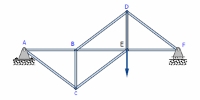
A foundational course in the mechanical properties of materials. An introduction to concepts of stress and strain is followed by in depth discussion of axial loading, torsional loading, bending stresses, transverse shear stresses, and combined loading states. Stress and strain transformations to determine principal stresses is covered. Applications to beams, shafts, trusses, pressure vessels and buckling of columns are emphasized.
- Spring 2021: Syllabus | Average evaluation: N/A
- Fall 2020: Syllabus | Average evaluation: 4.61 / 5.00
- Fall 2019: Syllabus | Average evaluation: 4.71 / 5.00
- Fall 2018: Syllabus | Average evaluation: 4.81 / 5.00
- Fall 2017: Syllabus | Average evaluation: 4.76 / 5.00
- Fall 2016: Syllabus | Average evaluation: 4.67 / 5.00
EGM 6570 - Principles of Fracture Mechanics
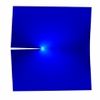
The objective of this course is to provide students with an introduction to the mechanics of fracture of brittle and ductile materials. Lectures will focus on the basics of linear-elastic fracture mechanics (LEFM) and elastic-plastic fracture mechanics (EPFM) including the J-Integral. Time dependent fracture including creep and fatigue crack growth will be covered. Methods to experimental determine fracture properties (ASTM standards) will be introduced.
- Spring 2018: Syllabus | Average evaluation: 4.88 / 5.00
- Spring 2016: Syllabus | Average evaluation: 4.71 / 5.00
EML 6934 - Computational Nanomechanics and Nanomaterials
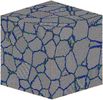
The objective of this course is to provide students with an overview of select atomistic modeling techniques in nanomechanics and nanomaterials. Modeling and simulation methods will be covered that span from atomistic to mesoscale domains, with particular focus given to “classical” atomistic modeling techniques such as molecular mechanics, molecular dynamics and Monte Carlo simulations. Applications will focus on studies of the structural and thermomechanical properties of materials.
- Spring 2020: Syllabus | Average evaluation: 4.75 / 5.00
- Spring 2017: Syllabus | Average evaluation: 4.82 / 5.00
EGM 6934 - Dislocation Plasticity
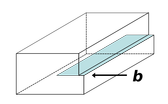
The first part of this course provides students with an overview of dislocation theory. This includes stress/displacement fields of straight and curved dislocations, dislocation core energies, interactions between dislocations, and relationships between dislocations and plastic slip. The second part of this course focuses on the classical theory of plasticity and the relationship between dislocations and plastic strain hardening. This includes yield surfaces, plastic potentials, isotropic/kinematic hardening, and other recent developments.
- Spring 2019: Syllabus | Average evaluation: 4.86 / 5.00
Courses Taught by Professor Spearot at the University of Arkansas:
- MEEG 2303 Introduction to Materials
- MEEG 4023 Composite Materials
- MEEG 4913 Intemediate Engineering Materials
- MEEG 5033 Advanced Mechanics of Materials
- MEEG 5343 Computational Materials Science
- MEEG 5733 Advanced Numerical Methds
MEEG 2303 - Introduction to Materials
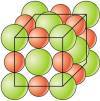
The objective of this course is to provide students with a fundamental understanding of the behavior of materials. Lectures introduce the concept of material microstructure at different length scales and emphasize the importance of microstructure on material properties and performance. Considerable focus is placed on traditional engineering materials (e.g. metals) with secondary focus on polymers, ceramic and semiconducting materials.
- Fall 2014: Syllabus | Homework Assignments | Average evaluation: 4.79 / 5.00
- Fall 2013: Syllabus | Homework Assignments | Average evaluation: 4.87 / 5.00
- Fall 2012: Syllabus | Homework Assignments | Average evaluation: 4.67 / 5.00
- Fall 2010: Syllabus | Homework Assignments | Average evaluation: 4.5 / 5.0
- Fall 2009: Syllabus | Homework Assignments | Average evaluation: 4.5 / 5.0
- Fall 2008: Syllabus | Homework Assignments | Average evaluation: 3.9 / 5.0
- Fall 2007: Syllabus | Homework Assignments | Average evaluation: 4.0 / 5.0
- Fall 2006: Syllabus | Homework Assignments | Average evaluation: 4.0 / 5.0
MEEG 4023 - Composite Materials

A study of fibrous composite materials with emphasis on mechanical behavior, synthesis, and application. Topics include macro- and micromechanical analysis lamina, lamina theory, failure analysis in design, and manufacturing techniques.
- Spring 2015: Syllabus | Average evaluation: 5.00 / 5.00
- Spring 2013: Syllabus | Average evaluation: 5.00 / 5.00
- Spring 2011: Syllabus | Average evaluation: 4.9 / 5.0
- Spring 2009: Syllabus | Average evaluation: 4.7 / 5.0
- Spring 2007: Syllabus | Average evaluation: 4.4 / 5.0
MEEG 4913 - Intermediate Engineering Materials
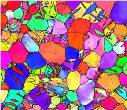
The objective of this course is to provide the student with a more in depth discussion of materials and materials science than that provided by previous required courses in the subject. This course will be arranged by material classifications and course topics include: Structure and mechanical properties of ceramic materials, synthesis and processing of ceramics and glasses, structure and mechanical behavior of thermoplastic and thermosetting polymers, electronic and magnetic properties of materials, and advanced dislocation theory in metallic materials.
- Fall 2014: Syllabus | Average evaluation: 5.00 / 5.00
- Fall 2011: Syllabus | Average evaluation: 4.92 / 5.00
MEEG 5033 - Advanced Mechanics of Materials
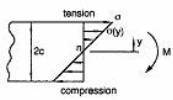
The objective of this course is to provide students with a deeper understanding of the material covered in a first course in mechanics of materials and build upon the elementary concepts and processes that have been mastered. Practical stress analysis problems will be covered ranging from those resembling simple models that have closed form solutions to complex problems that are not easily adaptable to classical techniques.
- Fall 2012: Syllabus | Course Topics | Average evaluation: 5.00 / 5.00
- Fall 2010: Syllabus | Course Topics | Average evaluation: 4.7 / 5.0
- Fall 2009: Syllabus | Course Topics | Average evaluation: 4.6 / 5.0
- Fall 2008: Syllabus | Course Topics | Average evaluation: 4.9 / 5.0
MEEG 5343 - Computational Materials Science
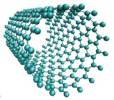
The objective of this course is to provide students with an overview of different modeling techniques in materials science. Applications will be presented that utilize computational tools to study the structural, mechanical, chemical and electrical properties of materials. A broad range of modeling techniques will be covered that span from atomistic to continuum domains. Particular focus will be given to atomistic simulation methods, including Monte Carlo, molecular mechanics and molecular dynamics.
- Spring 2014: Syllabus | Average evaluation: 5.00 / 5.00
- Spring 2012: Syllabus | Average evaluation: 5.00 / 5.00
- Spring 2010: Syllabus | Average evaluation: 4.7 / 5.0
- Spring 2008: Syllabus | Average evaluation: 4.5 / 5.0
- Spring 2006: Syllabus | Average evaluation: 4.4 / 5.0
MEEG 5733 - Advanced Numerical Methods
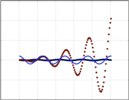
The objective of this course is to introduce numerical methods and computer applications for the solution of linear and non-linear ordinary and partial differential equations, initial and boundary value problems, one-step and multi-step methods. This course covers predominantly finite difference methods but will also provide a brief introduction to finite element and control volume techniques.
- Fall 2013: Syllabus | Average evaluation: 4.67 / 5.00